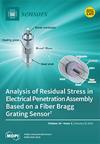利用半主动悬挂系统改善专用车辆的动态特性
IF 3.4
3区 综合性期刊
Q2 CHEMISTRY, ANALYTICAL
引用次数: 0
摘要
随着移动交通向智能商店和会议室等服务领域的多样化发展,加速了专用车辆(PBV)的开发--这些车辆专为特定用途而设计,采用了加长型电动汽车底盘和自动驾驶技术。尽管大韩民国《国家陆路交通法》规定了减速带尺寸标准,但现实世界中减速带的宽度和高度各不相同,偏离了这些标准。在本研究中,通过回归分析得出了一个速度方程,以通过两种类型的半主动悬架控制:比例-积分-微分(PID)和线性-二次方-调节器(LQR),使通过不同形状减速带的 PBV 达到所需的动态特性。对于一辆货物运输型 PBV,PID 和 LQR 控制器在不同的减速带宽度下分别提高了 23.74% 和 50.74%,在不同的减速带高度下分别提高了 19.44% 和 38.31%。此外,对衡量驾驶舒适性的指标--振动剂量值(VDV)的分析表明,使用速度方程计算出的 VDV 在可接受的误差范围内,比目标 VDV 高 10%。这些研究结果为不同类型的自动驾驶 PBV 所需的速度控制提供了见解,以确保乘坐舒适性,并根据车辆的具体用途最大限度地缩短驾驶时间。本文章由计算机程序翻译,如有差异,请以英文原文为准。
Improvement of Dynamic Characteristics of Purpose-Built Vehicles Using Semi-Active Suspension System
The diversification of mobility into services such as smart stores and conference rooms has accelerated the development of purpose-built vehicles (PBVs)—vehicles designed for specific purposes that utilize an extended electric vehicle chassis and autonomous driving technology. Despite the standards on speed bump dimensions stipulated by the National Land Transportation Act of the Republic of Korea, real-world speed bumps feature varying widths and heights that deviate from these standards. In this study, a velocity equation was derived via regression analysis to achieve the desired dynamic characteristics for a PBV passing over speed bumps with varying shapes through two types of semi-active suspension control: proportional–integral–differential (PID) and linear–quadratic–regulator (LQR). For a cargo-transport PBV, the PID and LQR controllers increased the velocity by 23.74% and 50.74%, respectively, under different speed bump widths and by 19.44% and 38.31%, respectively, under different speed bump heights. Moreover, an analysis of the vibration dose value (VDV), an indicator of ride comfort, revealed that the VDVs calculated using the velocity equation were within an acceptable error range of 10% above the target VDV. These findings provide insights into the speed control required for different types of autonomous PBVs to ensure ride comfort, as well as minimize the driving duration, depending on the specific purpose of the vehicle.
求助全文
通过发布文献求助,成功后即可免费获取论文全文。
去求助
来源期刊

Sensors
工程技术-电化学
CiteScore
7.30
自引率
12.80%
发文量
8430
审稿时长
1.7 months
期刊介绍:
Sensors (ISSN 1424-8220) provides an advanced forum for the science and technology of sensors and biosensors. It publishes reviews (including comprehensive reviews on the complete sensors products), regular research papers and short notes. Our aim is to encourage scientists to publish their experimental and theoretical results in as much detail as possible. There is no restriction on the length of the papers. The full experimental details must be provided so that the results can be reproduced.
 求助内容:
求助内容: 应助结果提醒方式:
应助结果提醒方式:


